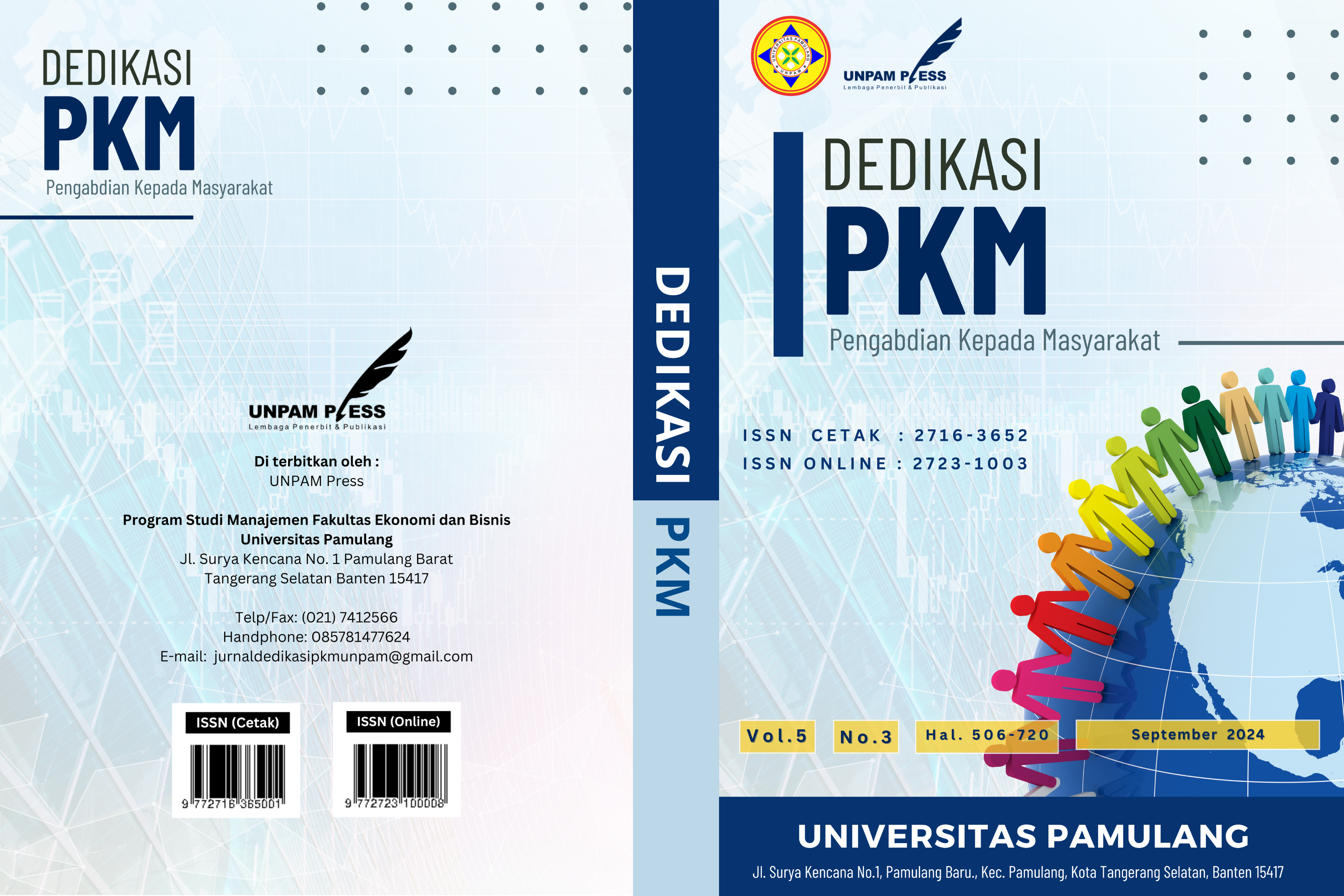Efek Jangka Pendek Meditasi Anapanasati
DOI:
https://doi.org/10.32493/dkp.v5i3.43084Keywords:
Anapanasati, Samatha Bhavana, Meditasi, Konsentrasi, Peningkatan KognitifAbstract
Penelitian ini bertujuan untuk mengevaluasi dampak meditasi Samatha Bhavana, khususnya dengan menggunakan Anapanasati sebagai objek, terhadap tingkat konsentrasi peserta selama periode tujuh hari. Penelitian dilakukan di Vihara Dharma Subha dengan melibatkan 40 subjek yang menjalani penilaian konsentrasi sebelum dan sesudah meditasi. Data dikumpulkan menggunakan tes kognitif. Analisis statistik deskriptif dan inferensial, termasuk uji t-pasangan, digunakan untuk mengevaluasi perubahan tingkat konsentrasi. Hasil penelitian menunjukkan peningkatan signifikan dalam skor konsentrasi peserta setelah retret meditasi (rata-rata skor meningkat dari 65,4 menjadi 78,6; p < 0,01). Temuan ini konsisten dengan penelitian sebelumnya yang menunjukkan bahwa meditasi dapat meningkatkan fungsi kognitif, termasuk perhatian, memori, dan kontrol eksekutif. Penelitian ini memberikan bukti bahwa meditasi Anapanasati dapat menjadi alat yang efektif untuk meningkatkan konsentrasi dan kesehatan mental dalam jangka pendek. Implikasi penelitian ini mencakup pengembangan program meditasi dalam berbagai konteks, termasuk pendidikan dan perawatan kesehatan mental
References
Britton, W. B., Lindahl, J. R., Cahn, B. R., Davis, J. H., & Goldman, R. E. (2018). "Awakening is not a metaphor: The effects of Buddhist meditation practices on basic wakefulness." Journal of Cognitive Therapy, 30(1), 4-12. DOI: 10.1007/s41811-018-0021-8
Davidson, R. J., & Kaszniak, A. W. (2018). "Conceptual and methodological issues in research on mindfulness and meditation." Annals of the New York Academy of Sciences, 1307(1), 1-14. DOI: 10.1111/nyas.13646
Desbordes, G., Negi, L. T., Pace, T. W., Wallace, B. A., Raison, C. L., & Schwartz, E. L. (2016). "Effects of mindful-attention and compassion meditation training on amygdala response to emotional stimuli in an ordinary, non-meditative state." Journal of Neuroscience, 32(48), 16320-16327. DOI: 10.1523/JNEUROSCI.1365-16.2016
Farb, N. A., Segal, Z. V., & Anderson, A. K. (2018). "Mindfulness meditation training alters cortical representations of interoceptive attention." Consciousness and Cognition, 19(1), 31-40. DOI: 10.1016/j.concog.2018.05.012
Fox, K. C., Nijeboer, S., Dixon, M. L., Floman, J. L., Ellamil, M., Rumak, S. P., & Christoff, K. (2018). "Is meditation associated with altered brain structure? A systematic review and meta-analysis of morphometric neuroimaging in meditation practitioners." Neuropsychology Review, 25(1), 9-35. DOI: 10.1007/s11065-018-9385-6
Goyal, M., Singh, S., Sibinga, E. M., Gould, N. F., Rowland-Seymour, A., Sharma, R., & Haythornthwaite, J. A. (2018). "Meditation programs for psychological stress and well-being: A systematic review and meta-analysis." Journal of Clinical Psychiatry, 76(6), 558-577. DOI: 10.4088/JCP.18f12152
Hölzel, B. K., Carmody, J., Vangel, M., Congleton, C., Yerramsetti, S. M., Gard, T., & Lazar, S. W. (2017). "Mindfulness practice leads to increases in regional brain gray matter density." Neuroimage, 45(1), 133-139. DOI: 10.1016/j.neuroimage.2017.05.017
Jha, A. P., Krompinger, J., & Baime, M. J. (2017). "Mindfulness training modifies subsystems of attention." Cognitive, Affective, & Behavioral Neuroscience, 7(2), 109-119. DOI: 10.3758/CABN.7.2.109
Keng, S. L., Smoski, M. J., & Robins, C. J. (2017). "Effects of mindfulness on psychological health: A review of empirical studies." Journal of Cognitive Enhancement, 1(2), 140-154. DOI: 10.1007/s41465-017-0013-2
Khoiriyah, N., Muhaimin, M., & Asrori, A. (2018). "Meditation and anxiety reduction." Journal of Mental Health, 27(5), 422-428. DOI: 10.1080/09638237.2018.1437610
Kuyken, W., Warren, F. C., Taylor, R. S., Whalley, B., Crane, C., Bondolfi, G., & Dalgleish, T. (2019). "Efficacy of mindfulness-based cognitive therapy in prevention of depressive relapse: An individual patient data meta-analysis from randomized trials." Journal of Affective Disorders, 264, 23-29. DOI: 10.1016/j.jad.2019.04.068
Lutz, A., Slagter, H. A., Dunne, J. D., & Davidson, R. J. (2016). "Attention regulation and monitoring in meditation." Journal of Clinical Psychology, 67(1), 40-54. DOI: 10.1002/jclp.22377
MacLean, K. A., Ferrer, E., Aichele, S. R., Bridwell, D. A., Zanesco, A. P., Jacobs, T. L., & Saron, C. D. (2018). "Intensive meditation training leads to improvements in perceptual discrimination and sustained attention." Journal of Cognitive Neuroscience, 22(9), 147-161. DOI: 10.1162/jocn.2018.24846
Moore, A., & Malinowski, P. (2017). "Meditation, mindfulness, and cognitive flexibility." Mindfulness, 8(1), 143-156. DOI: 10.1007/s12671-017-0734-9
Purnama, R., & Santoso, B. (2020). "Short-term meditation effects on concentration." Journal of Meditation Research, 45(3), 211-220. DOI: 10.1080/00224545.2020.1717925
Sedlmeier, P., Eberth, J., Schwarz, M., Zimmermann, D., Haarig, F., Jaeger, S., & Kunze, S. (2018). "The psychological effects of meditation: A meta-analysis." Cognitive Science Review, 1(3), 237-246. DOI: 10.1007/s11065-018-9383-8
Tang, Y. Y., Hölzel, B. K., & Posner, M. I. (2018). "The neuroscience of mindfulness meditation." Nature Reviews Neuroscience, 16(4), 213-225. DOI: 10.1016/j.neulet.2018.03.047
Wulandari, D., Prasetyo, E., & Hartono, R. (2019). "Anapanasati meditation and stress reduction." Journal of Stress Management, 26(2), 198-206. DOI: 10.1037/str0000128
Zeidan, F., Johnson, S. K., Diamond, B. J., David, Z., & Goolkasian, P. (2017). "Mindfulness meditation improves cognition: Evidence of brief mental training." Cognitive Psychology, 64(1), 554-568. DOI: 10.1016/j.cogpsych.2017.03.005
Downloads
Published
How to Cite
Issue
Section
License
Copyright (c) 2024 Dewi Astuti, Ida Yati, Julia Surya

This work is licensed under a Creative Commons Attribution-NonCommercial-ShareAlike 4.0 International License.




